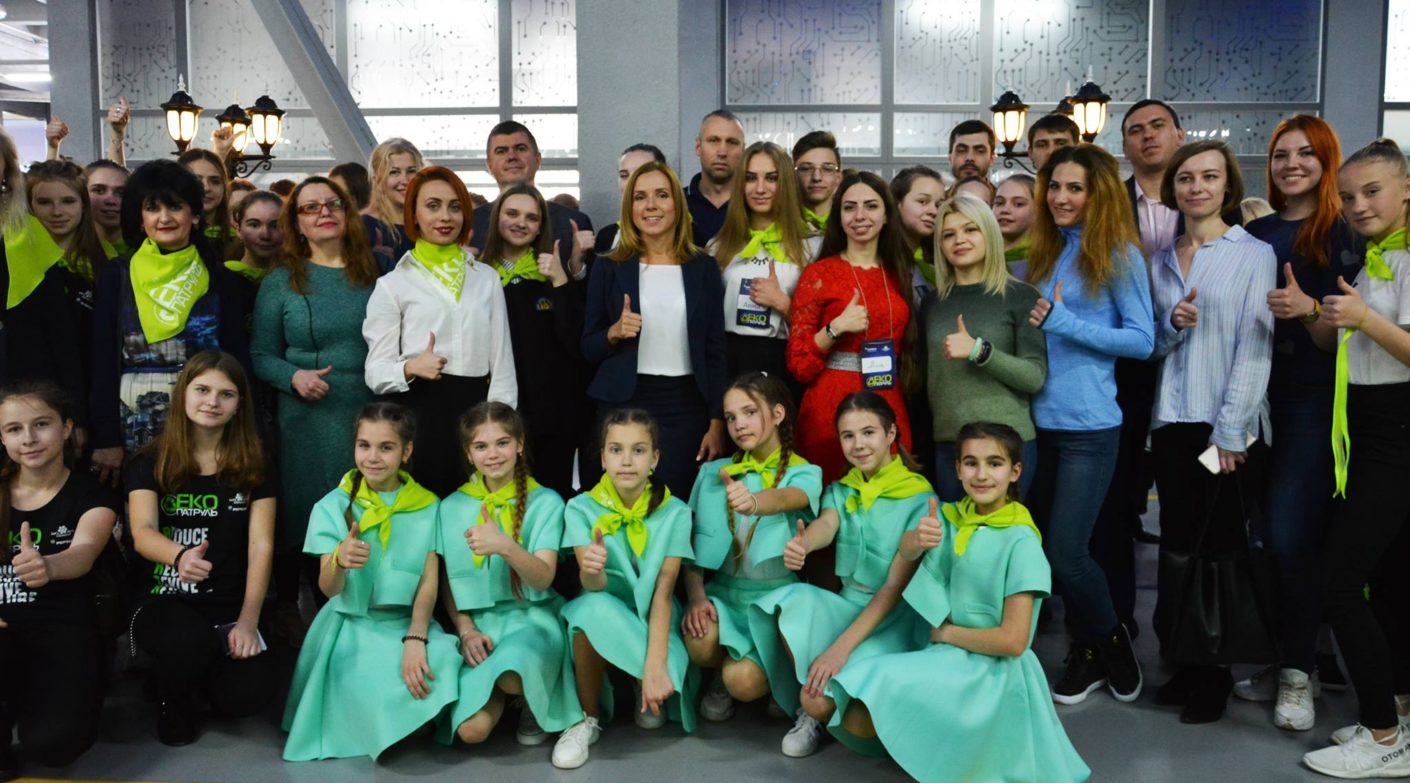Competition among student youth teams. Presentation and study of the best experience of organizing practical, research and experimental work of children and youth in the field of ecology, environmental protection and waste management. Teams consist of students and a leader who work during the school year, pass their experiences and recommendations from generation to generation, individual and creative approach in each school.
During the project, the ECO PATROL team presents their achievements during the school year. share practical experience: how the information and educational campaign was organized in the educational institution on the introduction of a system of proper waste management; how to sort secondary raw materials and hand them over for recycling; what work was done with the school staff and batkami; how the school's participation in the project affects the environment; what creative and innovative approaches were used to implement the School Recycling project.
The teams of eco-patrols consist of a head teacher and 9 active students of 7-11 grades, who are volunteers. By their example and actions, children and adolescents make their educational institution and its staff environmentally responsible, together with teachers they establish a system of proper waste management (sorting) and caring for the environment.
PROJECT MECHANICS
The organizers publish on the official website https://schoolrecyclingworld.org news of the start of the project, send official letters to educational institutions. Schools that have formed teams and carried out active work, fill out an application for participation. After registration closes, the best applications are selected and invited to a formal project to share experiences and select best practices. The project is implemented annually.
Participants submit a presentation in PowerPoint format. The presentation consists of 10 slides: 1. Name of the educational institution, motto of the ECO PATROL team. 2. Purpose and goals of the project in the educational institution for the academic year 3. Tasks of the project in the educational institution. 4. Activities that were carried out to activate and involve students in the project. 5. Activities that were carried out to activate and involve school staff in the project. 6. Activities that were carried out to activate and involve the families of students and the community. 7. Number of tanks for sorting, number of storage tanks, several photos of school sorting stations. 8. The amount of secondary raw materials in kilograms handed over for processing for the period September 2018 - February 2019 is written separately by fractions, the amount of solid waste sent to landfill by the educational institution for the previous school year, the amount of financial resources received under the project for secondary raw materials. What is purchased or will be purchased with funds from the sale of secondary raw materials. 9. Photo of the ECO PATROL team (leader in the project's branded T-shirt, team in handkerchiefs, creative photo) and its composition, number of students in the school (including women and men). 10. Contact information: address, phone, fax, website, e-mail, social media pages; contact information of the project coordinator: phone, e-mail address, link to the page in social networks; contact information of the leader of the ECO PATROLS team.
The teams will also present a video work - "My school ECO SCHOOL".
The organizers send a letter with the provisions of the project and the addition of logos for use during the presentation, video.
The works provided within the project ECO PATROLS - BEST PRACTICES, participants can use once again when applying for participation in the NATIONAL RATING "ECO SCHOOL OF THE YEAR"


